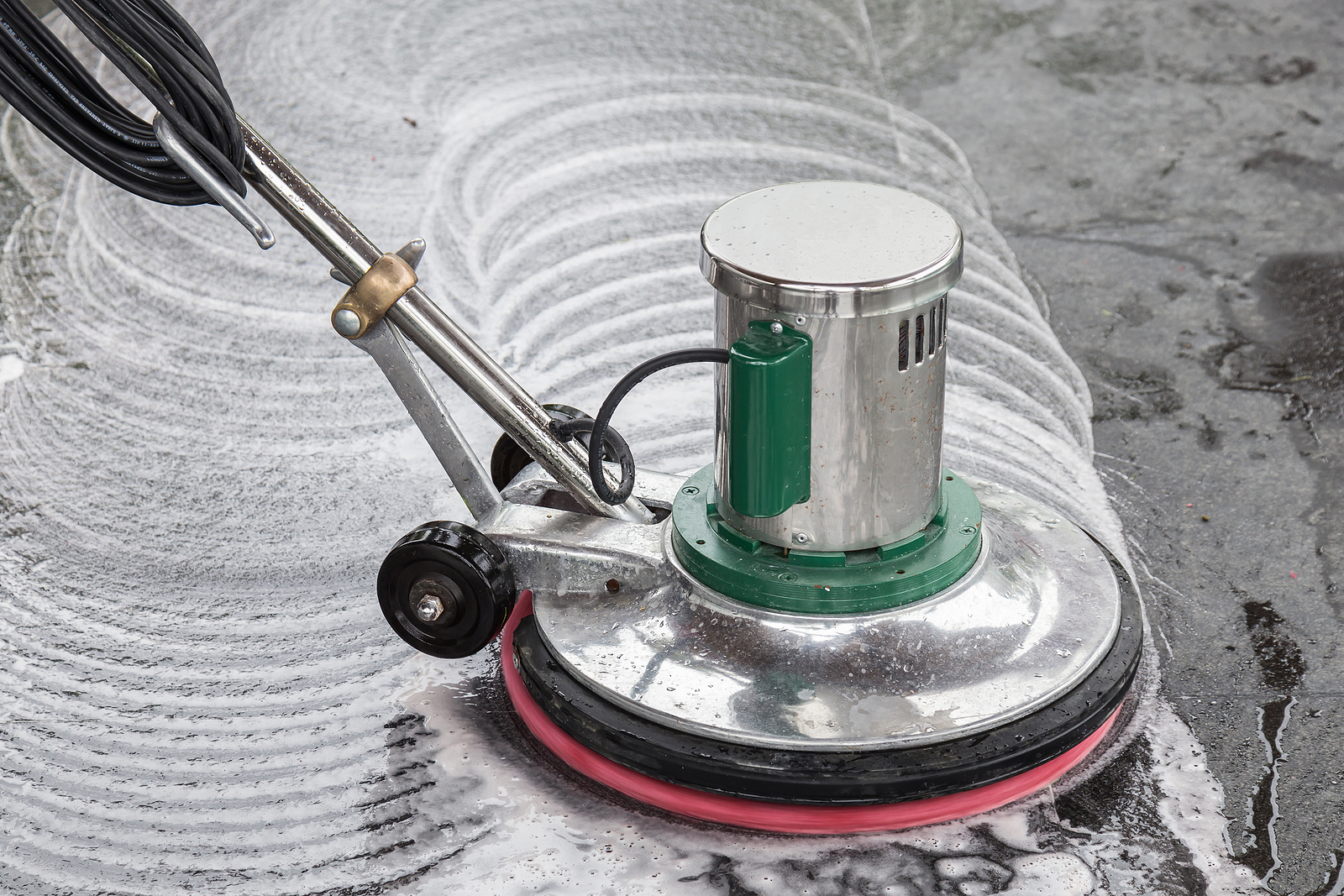The Benefits of Stone Floor Cleaning using Amant’s Floor Care in the St. Louis region.
(FloorCleaningStLouis) Stone Floor Cleaning – Regular stone floor cleaning with a dust mop helps eliminate dirt buildup and prevent scratching while simultaneously minimizing any potential stains that may form.
Be wary of using general cleaners that contain acid that could etch the stone’s surface; instead, opt for neutral or detergent cleaners specifically tailored for stone surfaces.
What to Expect with Stone Floor Cleaning
Stone is one of the most elegant building materials, adding tremendous value to homes. However, due to its porous surface and propensity for staining, it must be regularly sealed and cleaned to retain its beauty and value. If this step is skipped, the stone could quickly lose its shine and color, becoming dull and discolored over time. Professionals can use special cleaning agents that remove even stubborn stains before polishing and sealing surfaces, leaving them looking brand new!
Noting the unique needs of different types of stone tiles requires special care. Therefore, hiring a company familiar with your specific type will allow them to clean it efficiently without damaging the material. They will also recommend products tailored to meet these particular requirements.
Hiring a professional to maintain the appearance of your home is definitely worth the cost. Not only is it cheaper than replacing flooring, but professional cleaners will ensure your stone stays looking pristine for longer. Furthermore, professional services will be safer than trying to do it on your own and also ensure faster and more effective cleaning processes—though some cleaning companies might add on extra charges after you hire them!
Factors to Consider with Stone Floor Cleaning
Residential stone cleaning companies are invaluable for many homeowners who want to keep natural stone surfaces looking their best. A reliable cleaning service will offer comprehensive solutions to remove deep-seated stains and spills while regularly sweeping and mopping the area. They may also recommend which cleaning products will best protect your floor’s surface and reduce pollution, which could cause other health concerns.
At the start of any regular cleaning process, stone should be swept to remove loose dirt particles, especially in high-traffic areas. Weeping also prevents buildups of grit or materials that could scratch or damage floors. After that step has been completed, the stone must be washed using potable water with neutral (pH 7) cleaners (if soap scum or other types of residue exist, use non-acidic cleaners); otherwise, outdoor applications should use solutions of mild bleach and water solution to flush away algae or moss growths from surfaces before flushing with solutions of mild bleach + water solutions).
Once stones have been cleaned, a quality sealer impregnator must be applied to help prevent future staining. The frequency and quality of its application depend on the stone’s porosity.
Experience – Amant’s Floor Care offers the most comprehensive experience in the region.
Stone floors require special care regarding cleaning supplies, equipment, and knowledge to be cared for properly. Although you might be tempted to try it yourself, professional services experienced in caring for and cleaning stone surfaces should always be used. Otherwise, improper cleaners and methods could damage them irreparably, making future maintenance more challenging.
Your stone floors’ level of wear and tear will determine how often they need to be cleaned, polished, and resealed; high-traffic areas require more frequent attention than rarely-used rooms.
Regular sealing of stone surfaces is one of the best ways to preserve and extend their lifespan. Unsealed stone absorbs spills and stains quickly, becoming increasingly difficult to clean up over time. Ealing forms a protective barrier, keeping spills at the surface so you can wipe them up quickly before they soak into the stone surface.
Acidic etching is another frequent problem with stone surfaces. If acid spills such as vinegar, lemon juice, or tomato sauce aren’t immediately cleaned up after they occur, they may start eating away at your stone flooring and leaving dull spots known as etches—dull spots that require professional resurfacing treatments to make them look new again.
Pricing for Stone Floor Cleaning Services
Chemicals and equipment typically comprise only a minor portion of the total costs of cleaning stone floors, with labor accounting for most expenses.
At the outset of regular stone floor maintenance, it is crucial to remove dirt, grit, and dust with regular sweeps or vacuuming and use a dry dust mop as soon as loose particles appear—this helps avoid premature wear on your stone surface. Once this step has been completed, neutral stone cleaners with pH levels between 7 and 7 can be used instead of acidic ones, which may break down sealers or cause etching damage.
Depending on the type and porosity level of stone floors, stone care specialists may suggest sealing them. Natural stone is porous; spills and stains can penetrate its pores without being protected with sealants. Acidic food items, cooking oil, and cleaning solutions may etch its surface without adequate protection; sealants provide long-term beauty by protecting its surface and keeping its look.
Professional cleaners may use special penetrating stone chemicals that penetrate deeply, leaving them to work for an extended amount of time on the floor. This approach may help remove organic stains like mildew or mold, as well as water rings or mineral deposits, from stone surfaces.
Links:
- View us on STL.Directory
- Sitemap


